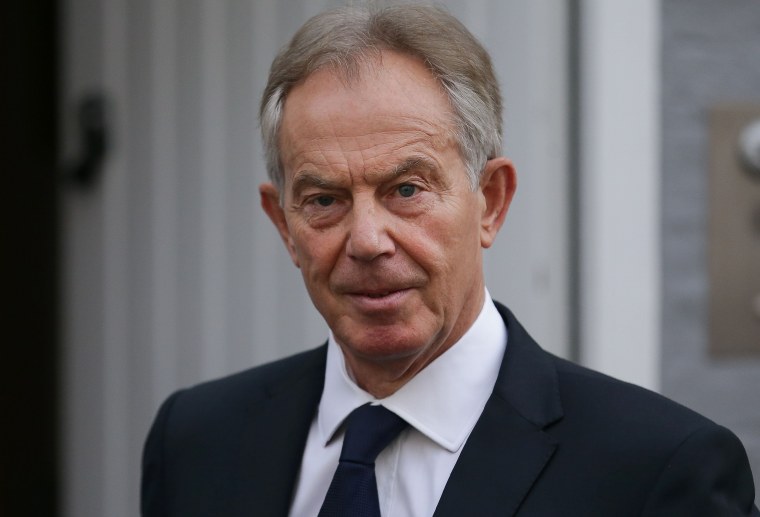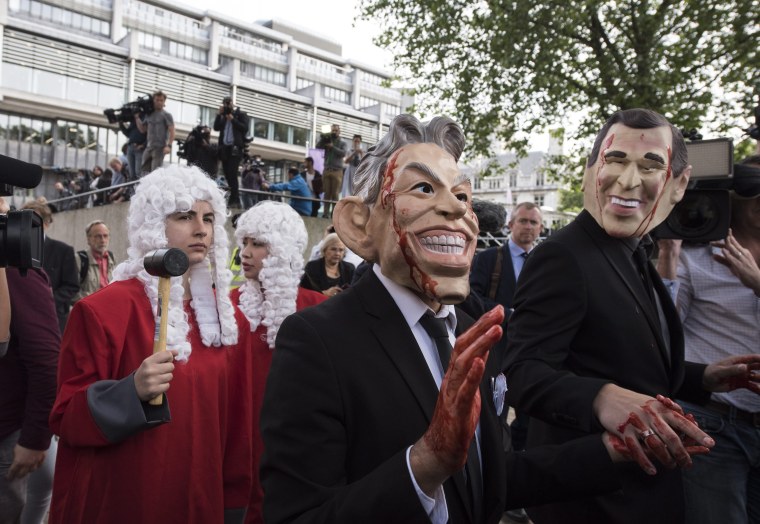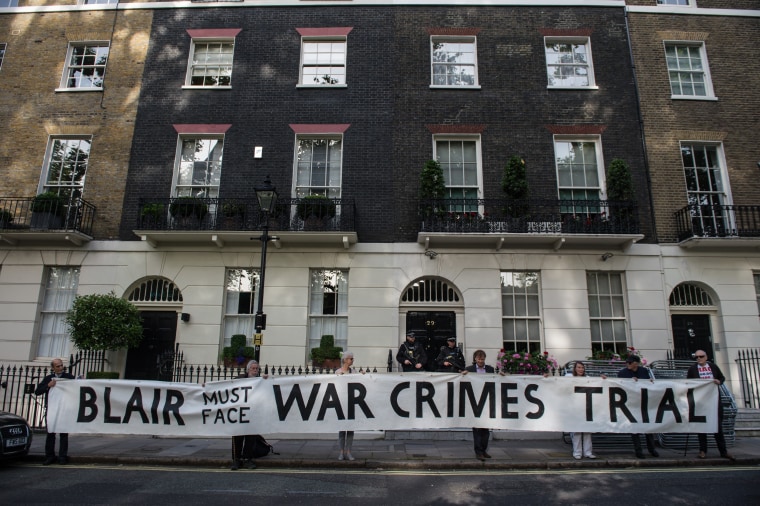LONDON — An exhaustive inquiry on Britain's role in the Iraq War delivered a scathing critique of the government, intelligence and "inadequate" military preparation for what it billed as a failed intervention.
The Iraq Inquiry — also known as the Chilcot report — took seven years to complete at a cost of around $13.5 million.
Related: Everything You Need to Know About Britain's Iraq Inquiry
While it stopped short of accusing then-Prime Minister Tony Blair of lying about grounds for war, the report slammed the justification and basis for intervention as "far from satisfactory."
"The U.K. chose to join the invasion of Iraq before the peaceful options for disarmament had been exhausted," Sir John Chilcot, who chaired the report, told a press conference in London on Wednesday. "Military action at that time was not a last resort.”
Chilcot’s report said the U.K.'s preparation for war was "wholly inadequate" and that it "failed to achieve the goals it had set for a new Iraq."

Blair on Wednesday defended his decision to go to war, telling a press conference that it was "the hardest, most momentous, most agonizing decision" he had to make in office.
"I express more sorrow regret and apology than you may ever know or can believe," he said of any failures. "I took this decision because I believed that it was the right thing to do."
The report leveled some of the harshest criticism at U.K. intelligence agencies, saying Britain's spies had provided "flawed intelligence to the government" and failed to make clear that their assessments Saddam Hussein had weapons of mass destruction were not "beyond doubt."
Still, it said, the intelligence reports "were not challenged" — but "should have been."
Before the war, Blair told lawmakers that Saddam Hussein had weapons of mass destruction that could be used in 45 minutes — claims subsequently debunked by weapons inspectors.
Chilcot's report said it was "not questioning" Blair's belief that Saddam had such weapons but that his "certainty" was not backed up by the evidence at the time.
On the matter of Britain's role in post-invasion Iraq, the report went even further.
"Blair told the inquiry that the difficulties encountered in Iraq after the invasion could not have been known in advance. We do not agree," it said. "The risks of internal strife in Iraq, active Iranian pursuit of its interests, regional instability and al Qaeda activity in Iraq were each explicitly identified before the invasion."
Chilcot said "the consequences of the invasion were underestimated" and the planning and preparations for Iraq had been "wholly inadequate."

Ultimately the Iraq war ended "a very long way from success" and in humiliating fashion for Britain — "an intervention which went badly wrong, with consequences to this day," the report found.
Almost 4,500 U.S. servicemen and women were killed during the conflict. Estimates of the number of Iraqi civilians killed vary widely and stretch upward from 100,000.
In the years following the invasion, Iraq teetered on the brink of sectarian civil war. This bloodshed has not relented: This Sunday saw the deadliest bombing since the start of the war.
Blair said in a press conference following the report that "no words can properly convey the grief and suffering of those who lost the ones they loved in Iraq."
While he admitted that intelligence assessments were "wrong," Blair stressed that "as the report makes clear, there were no lies" and that "there was no secret commitment to war."
"I accept full responsibility for these points of criticism even where I do not agree with them," Blair said.
How hard the Chilcot Report came down on Blair was of intense interest in a country grappling with anti-establishment anger and political uncertainty.
The report painted the U.K. as a junior and largely ineffective partner to America in the run-up and during the conflict and said Blair "overestimated his ability to influence U.S. decisions on Iraq."
It drew from 29 letters and memos and 130 conversations between Blair to President George W. Bush, although many of their discussions went unrecorded.
In one of these memos — sent months before Britain's Parliament gave its backing to the invasion — Blair told Bush: "I will be with you, whatever."
That and the report's findings were unlikely to mollify Blair's critics, who have gone so far as to suggest he be convicted of war crimes.

Nor is its criticism of flaws in Britain's military preparation and equipment expected to fully satisfy the families of the 179 British servicemen and women who died in the conflict.
Sarah O'Connor, a British woman whose brother was killed during the war, on Wednesday called Blair the "world's worst terrorist."
Controversy around the inquiry grew as the lengthy process dragged on. It initially was meant to take one year but instead took seven, and ended up costing the taxpayer around £10,375,000 ($13.56 million).
Its repeated delays drew criticism from all sides. One of the inquiry's committee members died during the lengthy process.
The final publication was 12 volumes long and ran for around 2.6 million words — around 33 times longer than the first "Harry Potter" novel.

